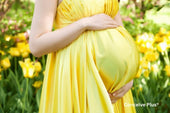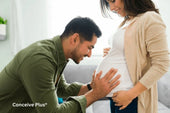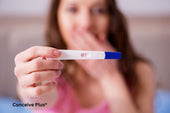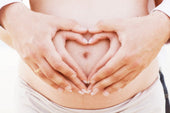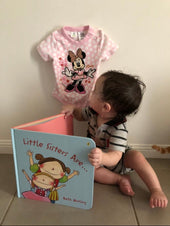Why a Valentine's Conception Needs More Than a Card and Roses

NEW YORK, February 14, 2014 /PRNewswire/ -- Pressure to make Valentine's Day all about sex and passion can feel daunting for 1 in 10 women in the US who face difficulty conceiving. Moreover, over the last three decades, women have been waiting longer to start having children. However, when it comes to fertility, age matters; both women and men are at their most fertile in their early twenties.
"Over recent years, establishing a career, getting on the housing ladder and ensuring financial stability are up there on the public's to-do list ahead of starting a family. There are so many fertility myths out there that need to be addressed but what is important for couples to consider is that the chances of becoming pregnant do dwindle with age," said leading pharmacist Raj Rohilla (Pharmacist at Battersea Pharmacy and owner of a chain of family focused pharmacies).
With a range of societal factors delaying women having children, fertility support is becoming an increasingly important part of conception for all couples trying to get pregnant. This February 14th, SASMAR - the fertility, family planning and female health specialists - looks to debunk common fertility myths; clarifying the do's and don'ts when trying to get pregnant.- Myth #1: It's easy for most women to get pregnant
The truth: While many fall pregnant without difficulty, 1 in 10 women in the US may face issues conceiving. Fertility support can be crucial in preparing the body for conception.
- Myth #2: Vaginal secretions usually indicate an infection
The truth: Vaginal secretions are natural and healthy. What's known as 'cervical mucus' plays a fundamental role in the process of conception by nourishing and protecting sperm as it travels through the female reproductive tract to meet the egg. Around 75% of couples experience vaginal dryness when trying for a baby. Moreover, of the 70%, most do not consider it to be a problem - this despite the body's conditions not being optimal for conception. For these couples, a scientifically tested fertility lubricant may be worth considering to ease and enhance the comfort of sexual activity, supplement the body's natural lubrication and help couples on the path to conceiving naturally.
- Myth #3: Sperm can only live up to three days
The truth: Actually, sperm can survive up to seven days in a woman's reproductive tract. It is crucial that a couple trying to conceive select a fertility lubricant designed and scientifically proven to be compatible with sperm, eggs, the process of fertilisation and embryo development to help keep sperm viable for the journey.
- Myth #4: A woman can get pregnant only one day per cycle
The truth: In most women, ovulation usually happens 10-16 days before the start of her next period. An egg lives for about 12-24 hours after being released. Sperm can survive in a woman's body for several days after sex. If a woman wants to get pregnant, having sex every couple of days will mean there are always sperm waiting in the fallopian tubes to meet the egg when it's released. A fertility lubricant with calcium and magnesium ions can mimic natural fertile cervical liquid and semen to create a conception-friendly environment.
- Myth #5: You get pregnant by having intercourse in almost any position
The truth: While there are no scientific studies on the best sexual positions for baby-making, the missionary (man-on-top) position is typically considered optimal for conception. Some suggest that placing a pillow under the hips and keeping legs raised after sex may enhance the sperms' ability to swim upstream.
For trying-to-conceive couples, a scientifically tested fertility lubricant may be worth considering. It is critical that couples trying to conceive select a personal lubricant scientifically proven for this purpose as clinical studies have found that several popular personal lubricants lower the chances of conception. However, others, such as Conceive Plus® Fertility Lubricant, can help trying-to-conceive couples increase their chances of getting pregnant.
Designed specifically for trying-to-conceive couples, Conceive Plus is the only personal lubricant that contains calcium and magnesium ions, which are naturally present in our bodies and essential for the process of fertilisation. Scientifically proven, the gentle formulation of Conceive Plus mimics natural fertile cervical liquid and semen to create a conception-friendly environment. It does not impair sperm motility or viability, nor does it harm sperm chromatin (DNA) or act as a barrier. The formulation does not harm the fertilisation process and is compatible with embryo development.
"75% of couples trying for a baby experience vaginal dryness, something that can be easily overcome with the use of a personal lubricant. It's important that a chosen personal lubricant is scientifically formulated for sperm, gamete, fertilisation and embryo compatibility. Conceive Plus contains Calcium and Magnesium ions essential for the fertilization process and is cleared by the FDA for this purpose. It can therefore be used by all trying-to-conceive couples, increasing their chances of getting pregnant naturally," said CEO of SASMAR and creator of Conceive Plus, John-Michael Mancini. When women are not trying to get pregnant, this product is also compatible with natural rubber latex and polyurethane condoms. For more information on Conceive Plus, please visit http://www.conceiveplus.com.







